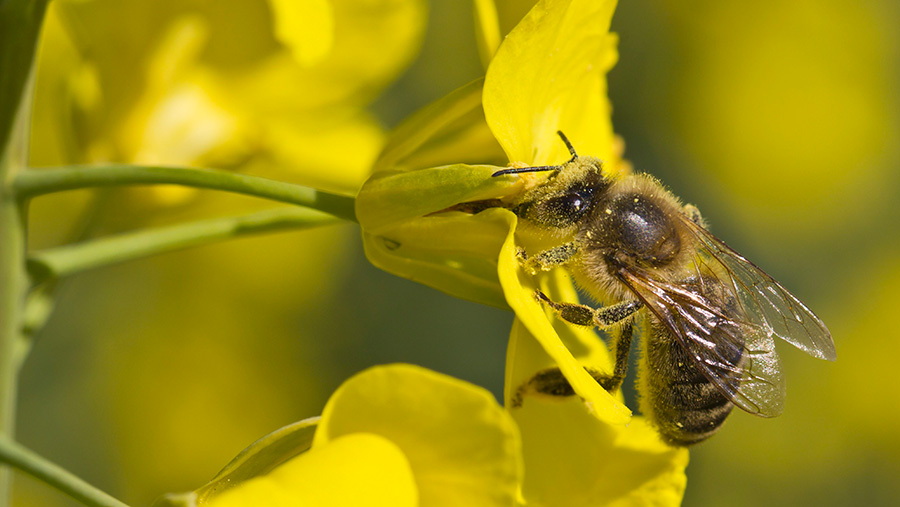‘Bitter blow’ after Defra rejects second neonics request
 © WestEnd61/REX/Shutterstock-
© WestEnd61/REX/Shutterstock- The NFU has expressed its deep disappointment after Defra rejected its second request for growers to use neonicotinoids on oilseed rape crops this autumn.
The union submitted a revised application for a derogation to allow growers to use Cruiser OSR and Modesto seed treatments on oilseed rape crops in English counties considered to be “hotspots” for cabbage stem flea beetle (CSFB) attacks.
The second application was narrower than the first, which requested a derogation to cover 33% of England’s OSR area.
See also: NFU gives ‘best shot’ at second bid for neonics
However, in a statement released on Tuesday (5 July), Defra said it had turned down the latest request after following advice from the government’s independent adviser on science related to pesticides.
“On 1 June 2016, the National Farmers Union submitted two applications to the Health and Safety Executive (the regulator) for emergency authorisation to allow the use on oilseed rape of Cruiser OSR and Modesto, which contain restricted neonicotinoids,” said Defra.
“The government’s independent adviser, the UK Expert Committee on Pesticides, has now submitted its advice to the government. It found that neither of the applications met the requirements for emergency authorisation.
“Accordingly, based on the evidence and the expert advice, the minister of state at Defra, George Eustice, has rejected both applications.”
‘Very disappointing news’
Reacting to the decision, Guy Smith, NFU vice-president, said: “This is very disappointing news for oilseed rape growers.
This will be a bitter blow for farmers at a time when oilseed rape is one of the few arable crops with a good, positive margin Guy Smith, NFU
“If we have a difficult establishment period this autumn with high flea beetle pressure, I have no doubt that a huge percentage of the oilseed rape crop will be lost.
“This will be a bitter blow for farmers at a time when oilseed rape is one of the few arable crops with a good, positive margin.”
Previous lab-based studies have linked the neonicotinoids to a decline in bees, but the NFU has consistently refuted the claims and called for more research to be done in the field to establish the true effect of neonics on these important pollinators.
Mr Smith added: “This decision will also be bad news for bees as bees like oilseed rape for an early forage in April and May. Without healthy rape crops, bees do not do as well.”
Friends of the Earth reaction
However, green campaigners Friends of the Earth (FoE) said the decision was good news for bees and other pollinators.
FoE bee campaigner Dave Timms said: “This is great news for bees and other wildlife. We are delighted the application has been refused.
“The government must do all it can to safeguard our under-threat pollinators.
“This should include maintaining the current ban on bee-harming pesticides – and committing to upholding and enforcing EU nature protection rules, which are now at risk as we plan our Brexit.”
The EU banned neonicotinoids from use on flowering crops, including sunflowers, barley and oilseed rape, in 2013 after studies linked their use to a decline in bee health.
Since the ban was introduced, scientists at Rothamsted Research have warned of increasing levels of resistance in flea beetle populations in south-east England to pyrethroid sprays, commonly used as the chemical control alternative.
Farmplan software

GateKeeper crop management software is designed to help growers with precision farming, data management, record keeping and traceability. Find out more.

